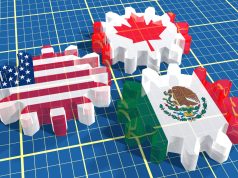As a seasoned financial advisor, I have come to appreciate the nuances of negotiation in a wide array of contexts – from the adrenaline-fueled atmosphere of the boardroom to the more subtle yet equally critical discussions that take place at my own desk. Negotiation is not an art reserved solely for the top executives; it is a fundamental skill that permeates every level of a professional’s career.
Reflecting on a recent negotiation at my workplace, I recognized that the strategies I employed mirrored the sophisticated tactics I often read about in high-profile deals covered by The New York Times. The preparation was meticulous, I knew my objectives clearly, and most importantly, I understood my BATNA – my Best Alternative to a Negotiated Agreement. It was a reminder that even when not dealing with million-dollar mergers, knowing your fallback position provides a solid foundation from which to negotiate confidently.
Active listening played a crucial role in this process. Much like a seasoned diplomat, I paid close attention not only to what was said but also to what was left unsaid, gauging non-verbal cues and the underlying interests of my counterparts. This technique is as effective in an office setting as it is in international diplomacy. By actively engaging with the other party, I was able to uncover mutual interests that led to a win-win outcome, a strategy echoed in the successful negotiations heralded in global financial markets.
Emotional intelligence was another key player in my negotiation toolkit. The ability to manage and harness emotions can often mean the difference between a favorable agreement and one that falls through. In high-stress situations, such as political stand-offs or major corporate mergers, emotional intelligence can defuse tensions and foster an environment conducive to constructive discussion. In the workplace, this skill is invaluable for navigating complex team dynamics and ensuring collaborative problem-solving.
While these strategies have proved effective, it is just as important to recognize common negotiation pitfalls. Overconfidence, for example, can lead to underestimating the other party, while a lack of preparation can result in a weak negotiation position. Additionally, failing to actively listen can cause missed opportunities for synergy.
Understanding and honing the intricacies of negotiation unquestionably benefits professional growth. Not only does it enhance your ability to advocate for your interests, but it also strengthens workplace relationships by fostering respect and mutual understanding.
To my fellow professionals, I urge you to view every negotiation, no matter the scale, as an opportunity to practice and perfect these universal strategies. Whether you’re securing resources for a new project, negotiating a raise, or even mediating a conflict among team members, the principles of negotiation remain the same. Mastering them will not only propel your career forward but also contribute positively to the collective success of our workplace.

















![From TAOLabs: A New, Simplified Way to Learn in the Age of Chaos [30m60h90d] From TAOLabs: A New, Simplified Way to Learn in the Age of Chaos](https://theworktimes.com/wp-content/uploads/2025/05/ChatGPT-Image-May-13-2025-01_11_22-AM-238x178.png)










